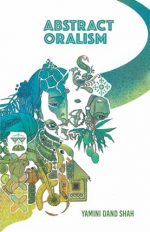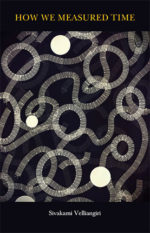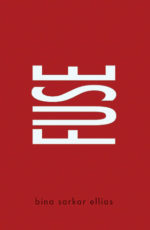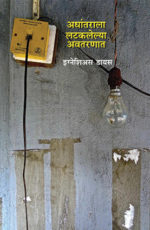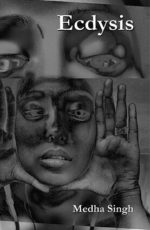-
Abstract Oralism
$20About the Book
Yamini Dand Shah, with this new book Abstract Oralism, captures both precisely and remarkably the mysterious and elusive world of the Kachchh of Western Gujarat. Her metaphors and similes transport the reader towards this ancient terrain where Indus Valley peoples once flourished. Conceptually advanced and sophisticated, the poetry of this book causes us to reconsider our place in the world: in the light of the author’s extraordinary perception that translates earthly experience into a uniquely beautiful expression of the human condition.
-KEVIN MCGRATH, Poet Laureate, Harvard University
In the ‘Abstract Oralism’, Yamini reveals the beguiling mythic and mimetic history of the dangerously luminous, sensuous, and ephemeral beauty of the desert of Rann of Kachchh leaving us astonished and redeemed at once. ‘Sifting through soiled pages of an anti-modern, abridged dictionary’ of memories, she weaves embroidered tales of palaeolithic biographies of forgotten people in an experimental genre of speech-therapy with fierce emotional power. By turns poignant, playful and ironic, Yamini’s deceptively layered linguistic dreamscapes break new ground in experiencing hallucinatory minimalism in poetry. A mesmerizing debut!
-ASHWANI KUMAR, Poet, Writer and Public Policy Researcher
-
How We Measured Time
$12About the Book
“How we Measured Time by Sivakami Velliangiri, gives us poetry of a childhood remembered, perhaps now and then fictionalised –memory is such a dicey thing. The poetry is rooted in nostalgia, memories rooted in the house and the mill compound she grew up in, and yet there is no sentimentality attached to it. There are moments when the poetry is uplifting, her mother identifying ‘serpents/ by the design of their costume’, a grandfather lifting her ‘to the coastline of his shoulders’. And a past advances towards the reader, the silence before a solar eclipse, the hubbub of a Kerala elephant-chase.’
– Keki Daruwala
-
Andhantarala Lataklelya Avtarnat
$10About the Book
This is Ignatius Dias’s first book of poems published by PoetryPrimero.
-
Four Degrees of Separation
$16About the Book
Potkar speaks with the cutting clarity of a woman wholly engaged with the world. She writes from the gilded moment vulnerability becomes knowledge, and then when knowledge becomes wisdom. The result, in all cases, is the poem: clever and crafted to a kind of broken perfection’ the cracks show, but the shattered places are dusted with powdered gold. ‘If a day is a life, a word is a story,’ Potkar writes. Her poetry condenses life into a gilded day, a story into a single word, as only a masterful poet can do it, or a woman can feel it. Mookie Katigbak-Lacuesta
-
Ecdysis
$16About the Book
After reading the book, one is left with a haunting feeling of something that cannot be revived but lived only through the traces that it leaves in the mind. The poet dives deep into the labyrinths of time to fish out moments that are close to her.
Details that would otherwise be overlooked take on a life of their own and narrate their stories for those who are willing to listen. Medha Singh’s poems demand the reader to not be a mute spectator but feel these snippets of memories as much as they yearn to share. Powerful imagery and the attempt to capture them through words has been done beautifully. – Semeen Ali
For Medha Singh, the poem is often a subterfuge for story; the desire to be a poet is a circularity of purpose; and poetry itself is the beginning and end of trust. Prickling in all directions, uneven, at times unsteady, she chases “itinerant darkness”, achieves rare moments of equanimity, even grace. Mundane reality is a fitting anti-climax, closure an escape.

